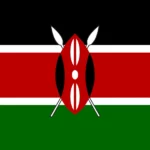
A National Task Force to drive the production of wheat and rice was recently inaugurated in Abuja with Kebbi State Governor Abubakar Atiku Bagudu as its chairman. His state, Kebbi, is expected to play a pivotal role in the program along with Kano and Ebonyi states. Other committee members include Kano State Governor Dr. Abdullahi Ganduje, Ebonyi State Governor David Umahi, Minister of State for Agriculture, President of Wheat Farmers Association of Nigeria and President of Rice Farmers Association of Nigeria.
At the committee’s inauguration, Vice President Professor Yemi Osinbajo said that move was necessary to consolidate government’s diversification policy. He said, “What we are trying to achieve is to make agriculture our mainstay and we are trying to evolve a strategy for the economy. A strategy for employment and a strategy for feeding our people. Rice and wheat is our main focus and we intend to make sure that in one year we can show the world that we are serious.” The committee is mandated to fix production targets for rice and wheat among the states taking part in the programme. It will also determine the scope, markets and government’s commitments necessary for success. Also listed among the terms of reference is the removal of deficiencies in the value chain and facilitating farmers’ access to support facilities such as the Central Bank of Nigeria’s [CBN] Anchor Borrowers’ Programme.
At this time of foreign exchange scarcity, it is commendable to fashion alternatives to the importation of these two products that have become some of the biggest consumers of foreign exchange. At a point, Nigeria was the largest importer of wheat from the United States. Even when we fell to third position in 2010/2011, we were still the most consistent customer of American wheat producers when we imported 3.5 million tons of wheat in the first quarter of that year. We are also one of the largest importers of rice in the world. Therefore, while we applaud the government’s goal and its efforts, we cannot but entertain some fears. There has always been a disconnect in this country between laudable policies and their implementation. Our archives are laden with once celebrated but long forgotten policies. Making state governors the fulcrum of the committee could become a problem because they have more than enough on their plates already.
In this goal we must take serious note of the country’s climate. While rice is a tropical crop and almost all states in Nigeria can produce it, same cannot be said of wheat which needs low temperature, a lot of water, a lot of fertiliser, a lot of pesticides and many other difficult requirements. It is well to recall that in the late 1980s, President Ibrahim Babangida’s military regime introduced the Accelerated Wheat Production Programme to wean Nigeria off massive wheat imports as part of the Structural Adjustment Program, SAP. Babangida also banned wheat imports. Despite massive Federal subsidies, or perhaps because of them, the program failed and was later abandoned.
This is not to say that we shouldn’t try again because of past failures. We must however learn from previous mistakes and not to commit them again. The Bagudu task force should set realizable targets and eschew over ambition. Nigeria could establish a competitive edge in rice production, being a tropical crop but we may have to restrict rice imports while we pursue our production targets. We must also straighten out some of the policy ironies of the Jonathan regime, including allowing rice millers to import husky brown rice at a concessionary duty, only for them to turn around and import fully polished rice. The Nigeria Customs Service is still trying to recover 21 billion naira in unpaid duty from the rice importers that exceeded their quotas. Governor Bagudu’s task force has one year to prove its worth. This must not be another failed national program.
 Join Daily Trust WhatsApp Community For Quick Access To News and Happenings Around You.
Join Daily Trust WhatsApp Community For Quick Access To News and Happenings Around You.



